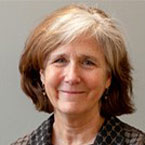By: Perri Klass, MD, FAAP & Eileen Costello, MD, FAAP
You're worried about a child you love. There's something different, something off, something eccentric, something quirky. You want to understand what's going on, and most of all, you want to help.
Your job as a parent is to help your child grow and develop and learn and thrive. To do that job properly, you have to understand your child as an individual, quirks and all.
Doing things differently
The world is full of quirky kids. They live with us in our houses, but they live in slightly different zones, seeing the world around them through idiosyncratic lenses, walking just a little out of step, marching and even dancing to the beat of different drummers.
The kids we are calling “quirky" are the ones who do things differently. Maybe you've noticed developmental variations—a child who doesn't
talk on time or, perhaps alternatively, talks constantly but can't get a point across. Or maybe there's something about your child's temperament that makes daily life a challenge: a rigid need for absolute routine, a propensity for nuclear tantrums. Or perhaps you're uncomfortably aware of social difficulties because your toddler is always alone while the rest of the playgroup lives up to its name.
These are the differences—skewed development, temperamental extremes, social complications—that define the group of quirky kids. As pediatricians and mothers, we are in contact with kids every day, and we have become interested in the quirky kids among us.
Quirky kids among us
Growing up with or without a diagnosis
Forty or 50 years ago, these kids would have been thought of as odd or eccentric. But they would not have undergone medical or psychiatric assessments, and they would not have been given diagnoses. Nowadays, you may find that helping your quirky child grow up involves coping with a formal diagnosis or often multiple diagnoses or diagnoses that shift and change as the child grows.
We're not talking about children diagnosed with severe developmental delay and intellectual disability or major mental illness. They are outside the scope of what we define here as “quirky," and there is a great deal of specific expertise out there to help parents get them the help and support they need. We are talking about a group of children who inhabit a grayer zone, a zone of characteristics also found in typically developing children, a zone of overlapping diagnoses and evolving terminology.
Finding their own path
Some of these children never need any special services or therapies. They follow their own eccentric paths through school and through life, accomplishing all kinds of wonderful and unusual things. But others struggle, and nowadays, that usually means medical attention.
You may find, for example, that concerns will be raised about whether your child has
autism spectrum disorder, nonverbal learning disability, or social (pragmatic) communication disorder. Depending on their strengths and weaknesses, as well as on who does the diagnosing, children may also be diagnosed with sensory processing disorder, social phobia,
or attention-deficit/hyperactivity disorder. It's important to note that these are all relatively recent diagnostic categories that may be used to describe children who, when we were young, might have just been called “eccentric"—or maybe harsher schoolyard names.
Challenging yet often charming
We're calling them
quirky kids. We prefer this term for a reason. It's not pejorative. In fact, it's sometimes a compliment. But it does suggest the unusual features—challenging yet often charming—shared by an increasing number of children in our society.
We don't mean to minimize the seriousness of your concerns or the pain that comes with worrying about a child. But it's also true that everyone gets only one childhood, one family, one set of parents. Look for ways to enjoy and appreciate the child you have, even as you look for answers and help.
About Dr. Klass
 Perri Klass, MD, FAAP,writes the weekly column, “The Checkup," for The New York Times. She is professor of journalism and pediatrics at New York University, practices pediatrics at Bellevue Hospital, and is the national medical director of Reach Out and Read. Dr. Klass is the author of numerous books including A Good Time to Be Born: How Science and Public Health Gave Children a Future. She is a mother of 3 and lives in New York, NY. Perri Klass, MD, FAAP,writes the weekly column, “The Checkup," for The New York Times. She is professor of journalism and pediatrics at New York University, practices pediatrics at Bellevue Hospital, and is the national medical director of Reach Out and Read. Dr. Klass is the author of numerous books including A Good Time to Be Born: How Science and Public Health Gave Children a Future. She is a mother of 3 and lives in New York, NY. |
About Dr. Costello
 Eileen Costello, MD, FAAP, is a clinical professor of pediatrics at Boston University School of Medicine and the chief of ambulatory pediatrics at Boston Medical Center. She directs the pediatric primary care clinic and is medical director of the SOFAR (Supporting Our Families through Addiction and Recovery) program for children of mothers with substance use disorders. She is a mother of 3 and lives in Jamaica Plain, MA. Eileen Costello, MD, FAAP, is a clinical professor of pediatrics at Boston University School of Medicine and the chief of ambulatory pediatrics at Boston Medical Center. She directs the pediatric primary care clinic and is medical director of the SOFAR (Supporting Our Families through Addiction and Recovery) program for children of mothers with substance use disorders. She is a mother of 3 and lives in Jamaica Plain, MA. |